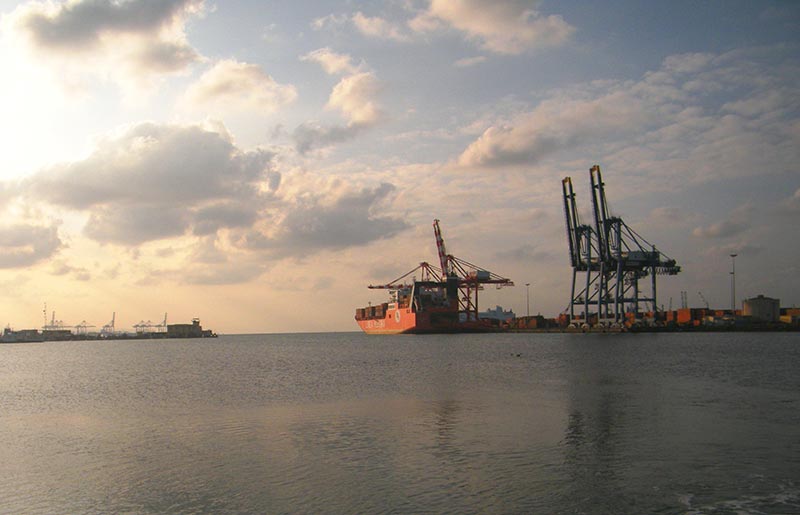
Coffee Filter Cup: The Soul Mate of Pour-Over Coffee
As a seasoned coffee enthusiast, I deeply understand the importance of a good coffee filter in achieving the perfect extraction. But did you know? When importing these delicate coffee tools, customs regulations are anything but "laid-back." Today, let me, a "veteran in foreign trade," take you through every aspect of importing coffee filters.
Material Comparison: Which Filter Cup is Right for You?
When importing coffee filter cups, material is one of the most critical considerations. Different materials not only affect extraction results but also relate toClassification of Customsand safety testing standards.
- Ceramic filters: The traditional choice, good heat retention but fragile. Special attention must be paid to lead and cadmium migration tests during import.
- Glass filters: Transparent and beautiful, but conducts heat quickly. Customs focuses on its thermal shock resistance performance.
- Metal filters: Durable but may affect flavor. Stainless steel is the most common material and must comply with heavy metal dissolution standards.
- Plastic filtersLightweight and economical, but attention must be paid to whether it meets food-grade PP standards.
- Resin filtersMelamine-like appearance with low cost. Customs will strictly test formaldehyde migration levels.
Customs Clearance Guide: Must-Knows for Importing Filter Cups
As an importer, the primary concern is how to clear customs smoothly. Based on my 20 years of experience, the following key points must be kept in mind:
1. Correct classification declaration
Coffee filter cups are usually classified under kitchenware commodities, with specific HS codes depending on material. For example, ceramic filter cups generally fall under heading 6911, while plastic filter cups are classified under 3924. Accurate material descriptions must be provided during declaration.
2. Strict safety testing
Customs will conduct tests according to GB4806 series standards, focusing on:
- Ceramic/glass products: Lead and cadmium migration levels
- Metal products: Heavy metal dissolution
- Plastic/resin products: Plasticizer and formaldehyde migration levels
3. Complete labeling requirements
Imported filter cups must have Chinese labels containing:
- Product name, material
- Manufacturer/importer information
- Declaration of conformity
- Usage instructions and precautions
Consumer Shopping Guide: Avoid These "Pitfalls"
As an end consumer, I have several practical suggestions when purchasing imported coffee filter cups:
1. Choose official channels
Choose merchants with proper import procedures and request to review the customs clearance documents and inspection reports. I've seen too many "three-no" imported products with questionable quality.
2. Material determines experience
Choose materials based on your brewing habits:
- Pursuing stable extraction: ceramic or glass
- Need portability and durability: metal or resin
- Limited budget: food-grade plastic
3. Details determine success or failure
Check if the filter cup edges are smooth and if the flow guide groove design is reasonable. I once imported a batch of filter cups with design defects, resulting in uneven extraction and significant losses.
Import Case Study: An Unforgettable Clearance Experience
Last year, I represented the import of a batch of handmade ceramic filter cups from Japan. Although the products were exquisite, we encountered problems during customs clearance:
- Issue: Some samples exceeded the lead migration limit
- Reason: The glaze formula did not comply with Chinese standards
- Solution: Negotiated with the supplier to improve the process and only released after passing re-inspection
This experience made me deeply realize that even the most exquisite products must comply with the importing countrys standards. Now, I always ask suppliers in advance to provide test reports compliant with GB4806.
Future Trends: Eco-Friendly Materials Gain Popularity
With increasing environmental awareness, biodegradable coffee filter cups are becoming popular. Recently, Im negotiating the import of a batch of bamboo fiber filter cups. Such new products must meet both food contact material standards and environmental requirements, posing higher challenges for importers.
Whether youre an importer or consumer, I hope this guide helps you better understand and choose imported coffee filter cups. Remember, a good cup of coffee starts with choosing the right filter cup, and a smooth import starts with understanding the rules!


 Follow Customer Service WeChat
Follow Customer Service WeChat